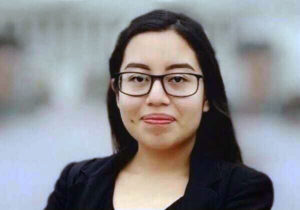
Going Big in the Beltway
 Labor supply is a challenge for the technology industry in greater Washington, D.C. The booming tech hub is projected to add more than 130,000 digital tech jobs during the next five years. And these gigs tend to pay well, with a median salary of $104K.
Labor supply is a challenge for the technology industry in greater Washington, D.C. The booming tech hub is projected to add more than 130,000 digital tech jobs during the next five years. And these gigs tend to pay well, with a median salary of $104K.
To help keep up with this demand, and with an eye toward equity, the Greater Washington Partnership in 2018 began working with employers and universities to embed relevant digital tech skills into higher education programs.
Students who attend 20 universities in the region now can complete a set of courses to earn a digital tech credential through the Capital Collaborative of Leaders in Academia and Business (CoLAB). Completers get a digital badge, one they can reasonably expect employers to recognize.
That’s because 17 companies have signed on to the project, including biggies like Amazon, Northrop Grumman, T. Rowe Price, and MedStar Health. Students who earn the credential also get access to a portal for internships, job recruitment opportunities, and professional development webinars.
“The demand in this region is so significant for this talent that there is plenty of work to go around, for all these students,” says Jeanne Contardo, vice president, and managing director of the Capital CoLAB.
The project is focused on scale through standardization. Contardo says the goal is to “tune” hiring demand by getting the region’s major tech employers to agree on the knowledge, skills, and abilities (KSAs) needed in a variety of digital fields. The CoLAB shares those competencies with universities, which map them into their curricula and create the digital tech badge.
“We pay attention to what our employers say they need when it comes to hiring digital tech talent and we signal that out to our education partners,” says Contardo.
The CoLAB’s goal is to engage 45,000 students and adult learners in digital tech pathways by 2025, with at least half of participating students from underrepresented populations.
Trinity Washington University this week announced it was joining the CoLAB project and seeking to widen digital tech career opportunities for women and students of color. More than two-thirds (70 percent) of undergraduates who attend the small women’s liberal arts university are eligible to receive federal Pell Grants, according to federal data. And 86 percent of its students are either Black (56 percent) or Latina (30 percent).
Michelle Vásquez, a senior at Trinity who is majoring in political science and business administration, says she’s excited about the university’s new minor in data analytics and the career and networking opportunities through CoLAB. “After completing a few internships in politics and business, I understood the importance of knowing how to use data visualization, coding language, and more,” she says.
In addition to the credential program, CoLAB works with K-12 schools, community colleges, and four-year institutions across five regional jurisdictions to build aligned digital tech pathways that begin in high school.
Most of the in-demand digital tech roles around the Beltway require a four-year degree, says Contardo. This is driven in part by federal contracting requirements as well as the relatively high share of workers in the region with college degrees.
But the landscape is changing rapidly, says Contardo.
The Kicker:
“I expect in the coming years, as employers move toward skills-based hiring in a more comprehensive way and as federal contracting requirements shift, that the CoLAB will evolve its partnerships to reflect this employer demand, certainly adding more community college partners and potentially others who aren’t even on the horizon,” she says.
This was originally posted in The Job: Higher Ed and the Workforce Newsletter.
